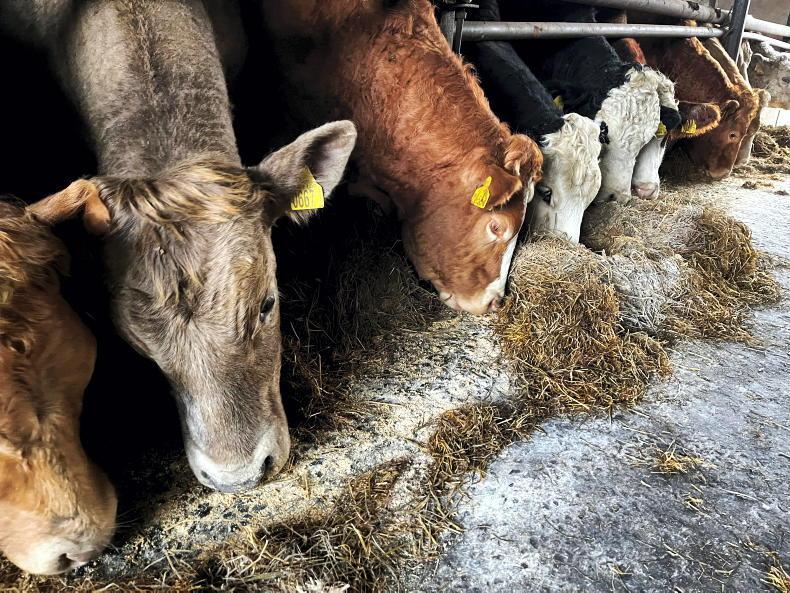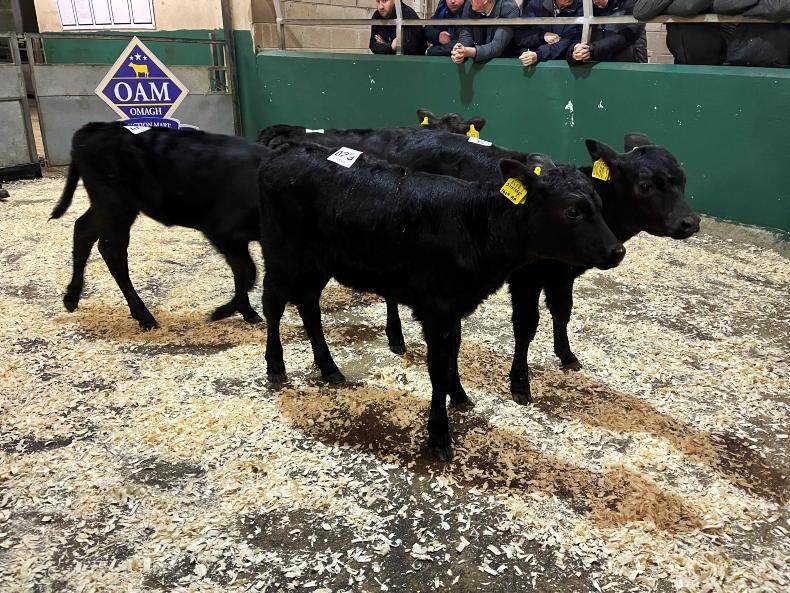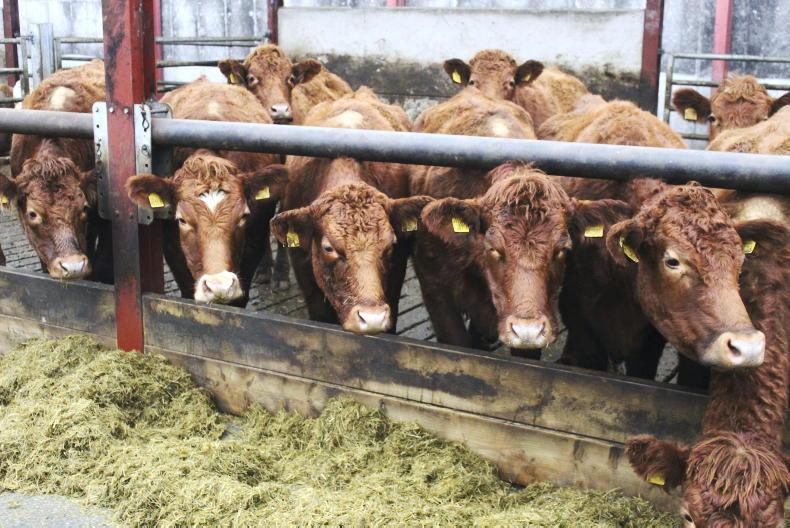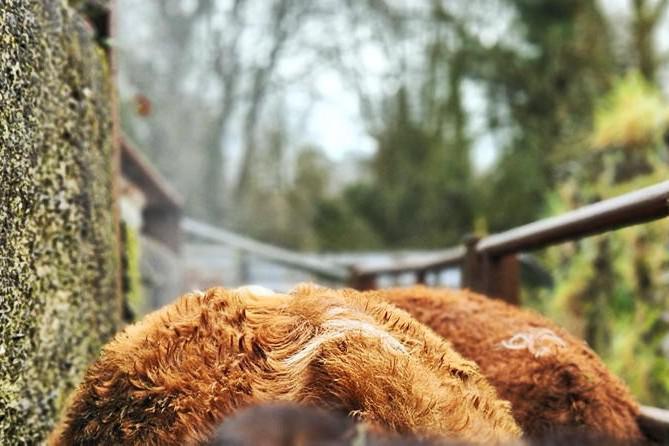Last week I had the pleasure of going on a CAFRE-led Farm Innovation Visit to the Cotswolds in England.
It didn’t involve the sort of farm visits I would typically be interested in and instead was all based around environmental issues and enhancing biodiversity.
However, given my involvement in the ArcZero project I was very hopeful I would get some help on my journey towards lowering my carbon footprint.
The Cotswolds is a whole different world to here in NI. The size of the farms is massive and the amount of wealth in the area is mind boggling. Then there is the land type and weather conditions both of which are a lot better than we have to endure. The entire trip was an eye-opening experience.
Herbal leys
The first couple of farms were trying different types and amounts of herbal leys and what struck me was the endless different plants to choose from.
The main thing that I took away is that these leys seem to be best suited to a break crop in an arable rotation, given their ability to improve soil structure and build soil fertility, which ultimately results in enhanced soil biology.
On one of the farms, they had decided to plant short rotation trees in rows between the different crops. This has lots of different biodiversity benefits as well as capturing carbon.
However, one thing said at the farm, which stood out, was that the whole process of carbon capture in soils needs livestock. This can often be lost in the carbon debate. Livestock help maintain the whole cycle and without them, the process breaks down.
Sucklers
The second farm was a very extensive suckler enterprise based on Hereford cattle taken through to beef and sold in beef boxes.
The farmer applied no artificial fertiliser and fed no meal. He let the cattle grow on until 30 months and over, before being slaughtered.
I couldn’t help but think about the number of planes flying in and out and the amount of fossil fuel being used – yet they say it’s the cow belching that’s polluting the world
He was generating sales of over £4,000 per head with the beef marketed under a “pasture for life” label.
The suckler herd was kept out all winter and they certainly looked very impressive.
One issue of concern was that he had to use Australian genetics as he said he couldn’t source genetics from this country to suit his grass-based system. It’s a sad reality that most of our pedigree breeders are using large amounts of meal to get their stock ready for sale.
There were many other notable things about this farm and he was adding value everywhere, including holiday accommodation and orchards from which he made his own apple juice.
Parkland farm
However, it was the last farm which had the biggest effect on me.
It was a large parkland farm, and the cows were kept out all year round. In the winter he has 180 plots with bales of hay on them. He moves the cattle every day and rolls out a few bales of hay.
He only grazes the ground twice a year. In May/June, he lets the cattle into tall seedy grass and only eats the top third and leaves the rest. This is then cut for hay in August and the bales left in the field.
No artificial fertiliser was spread, no meal given to cattle and no reseeding was done. We asked him about multispecies swards, and he said that he already had over 180 different plants in his fields.
He didn’t worm his cattle as the worms couldn’t get to the top of the plants, so the cattle weren’t eating them. In addition, there was no spraying of weeds – instead he claimed the cattle would eat them and they are full of vital minerals.
Everything he said pretty much went against all I have learnt about farming over the last 40 years.
I’m not going to change my farm to this system as yet, but it has opened my eyes to the opportunities that may be there for other farmers.
Perspective
On the way home we flew out of Heathrow Airport, and this put everything in perspective.
I couldn’t help but think about the number of planes flying in and out and the amount of fossil fuel being used – yet they say it’s the cow belching that’s polluting the world.
We farmers have so many options and we need to embrace them and sell our story better.
Read more
My experience after two years of MSS
'No regrets I didn’t switch to dairy'
Last week I had the pleasure of going on a CAFRE-led Farm Innovation Visit to the Cotswolds in England.
It didn’t involve the sort of farm visits I would typically be interested in and instead was all based around environmental issues and enhancing biodiversity.
However, given my involvement in the ArcZero project I was very hopeful I would get some help on my journey towards lowering my carbon footprint.
The Cotswolds is a whole different world to here in NI. The size of the farms is massive and the amount of wealth in the area is mind boggling. Then there is the land type and weather conditions both of which are a lot better than we have to endure. The entire trip was an eye-opening experience.
Herbal leys
The first couple of farms were trying different types and amounts of herbal leys and what struck me was the endless different plants to choose from.
The main thing that I took away is that these leys seem to be best suited to a break crop in an arable rotation, given their ability to improve soil structure and build soil fertility, which ultimately results in enhanced soil biology.
On one of the farms, they had decided to plant short rotation trees in rows between the different crops. This has lots of different biodiversity benefits as well as capturing carbon.
However, one thing said at the farm, which stood out, was that the whole process of carbon capture in soils needs livestock. This can often be lost in the carbon debate. Livestock help maintain the whole cycle and without them, the process breaks down.
Sucklers
The second farm was a very extensive suckler enterprise based on Hereford cattle taken through to beef and sold in beef boxes.
The farmer applied no artificial fertiliser and fed no meal. He let the cattle grow on until 30 months and over, before being slaughtered.
I couldn’t help but think about the number of planes flying in and out and the amount of fossil fuel being used – yet they say it’s the cow belching that’s polluting the world
He was generating sales of over £4,000 per head with the beef marketed under a “pasture for life” label.
The suckler herd was kept out all winter and they certainly looked very impressive.
One issue of concern was that he had to use Australian genetics as he said he couldn’t source genetics from this country to suit his grass-based system. It’s a sad reality that most of our pedigree breeders are using large amounts of meal to get their stock ready for sale.
There were many other notable things about this farm and he was adding value everywhere, including holiday accommodation and orchards from which he made his own apple juice.
Parkland farm
However, it was the last farm which had the biggest effect on me.
It was a large parkland farm, and the cows were kept out all year round. In the winter he has 180 plots with bales of hay on them. He moves the cattle every day and rolls out a few bales of hay.
He only grazes the ground twice a year. In May/June, he lets the cattle into tall seedy grass and only eats the top third and leaves the rest. This is then cut for hay in August and the bales left in the field.
No artificial fertiliser was spread, no meal given to cattle and no reseeding was done. We asked him about multispecies swards, and he said that he already had over 180 different plants in his fields.
He didn’t worm his cattle as the worms couldn’t get to the top of the plants, so the cattle weren’t eating them. In addition, there was no spraying of weeds – instead he claimed the cattle would eat them and they are full of vital minerals.
Everything he said pretty much went against all I have learnt about farming over the last 40 years.
I’m not going to change my farm to this system as yet, but it has opened my eyes to the opportunities that may be there for other farmers.
Perspective
On the way home we flew out of Heathrow Airport, and this put everything in perspective.
I couldn’t help but think about the number of planes flying in and out and the amount of fossil fuel being used – yet they say it’s the cow belching that’s polluting the world.
We farmers have so many options and we need to embrace them and sell our story better.
Read more
My experience after two years of MSS
'No regrets I didn’t switch to dairy'








SHARING OPTIONS